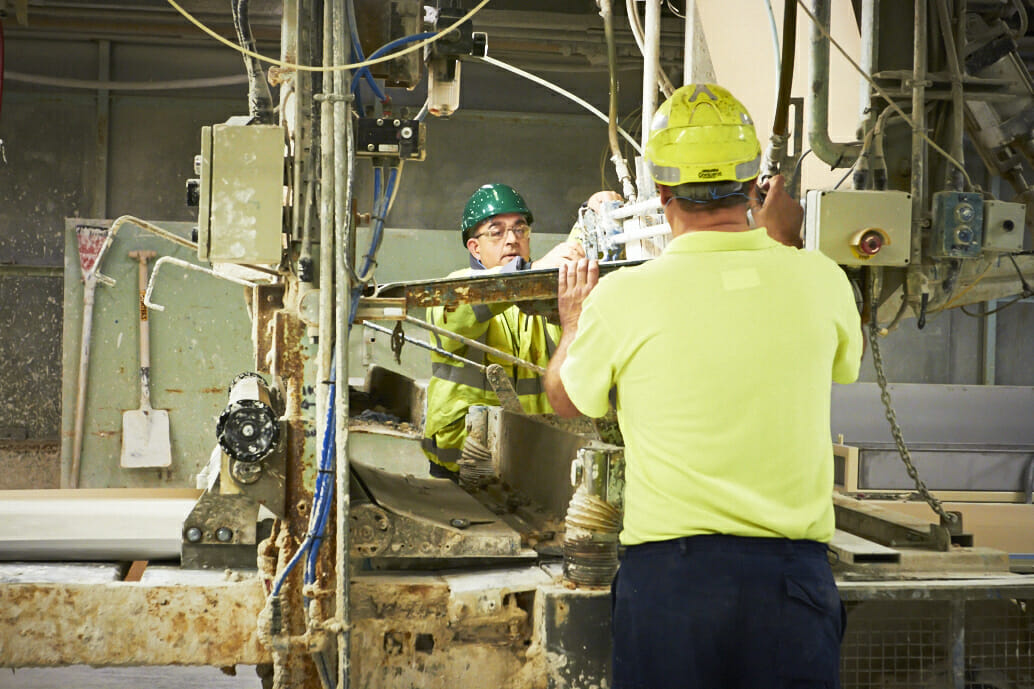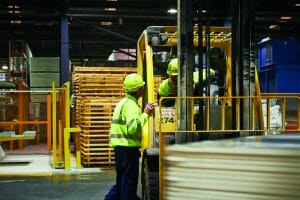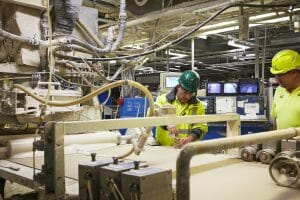
Leading lightweight construction manufacturer, Etex, has reported a 17% decrease in CO2emissions per tonne in 2020 compared to 2010 and a reduction of 38% over the past three decades. These results are ahead of the sector’s 10-year target (10%) and the company’s own science-based 30-year target (35%).
Etex’s newly released sustainability report – which covers its UK dry construction brands Siniat (drywall) and Promat (fire protection) – details its latest results across the two core areas that dominate sustainable construction in the 21st century: climate change and circular economy in materials.
On the latter, the business announced earlier this year that it had exceeded its recycling targets for 2020, achieving 18.4% post-consumer gypsum content in its plasterboard – surpassing the 10% target set by the sector for 2020. It expects this figure to rise to over 20% in 2021 and 30% by 2025. Overall, its closed-loop recycling efforts have increased by 742% over the past decade (2010 – 2020).

In total, just 0.003% of company materials were sent to landfill in 2020. The next step in Etex’s journey will be to achieve zero waste in its manufacturing activities.
Steve Hemmings, Head of Environment and Sustainability at Etex, said: “As whole-life carbon costing and circularity of materials become mainstream, our sustainability report provides an overview of our progress across a number of major themes. It’s always good to look back and reflect and I’m proud to say that through our investment in efficient process technologies, energy efficiency measures, employee training and wider use of renewable energy sources, significant advances have been made over the past decade.

“The reduction in carbon emissions associated with manufacturing plasterboard translates to lower embodied carbon in the products supplied to the construction market, which is becoming increasingly important in specification decisions. With this in mind, we’re looking forward to continuing to work hard to build on these improvements throughout 2022 and beyond.”
To read the full report, please visit: https://etex-bp.co.uk/sustainability/
